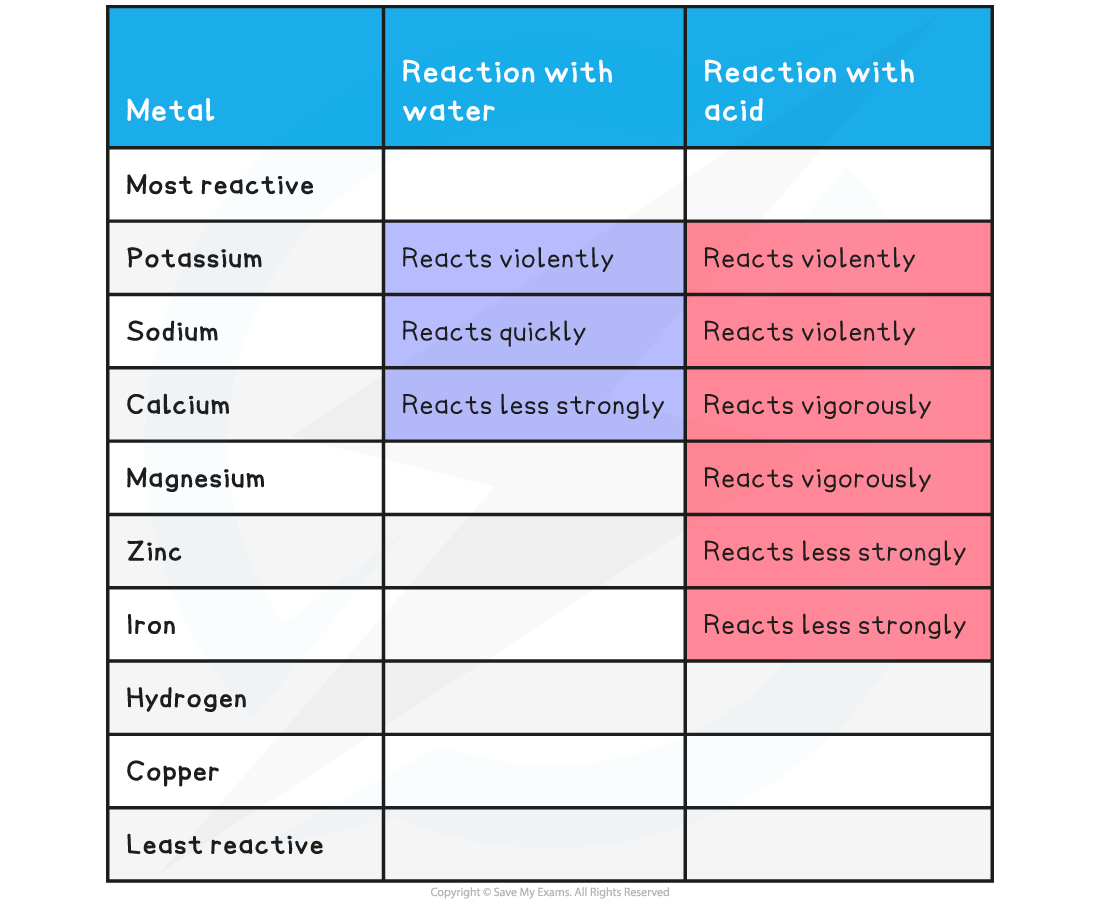- 翰林提供学术活动、国际课程、科研项目一站式留学背景提升服务!
- 400 888 0080
EDEXCEL IGCSE CHEMISTRY: DOUBLE SCIENCE 复习笔记:2.4.1 Metals Reacting with Water & Acids
EDEXCEL IGCSE CHEMISTRY: DOUBLE SCIENCE 复习笔记:2.4.1 Metals Reacting with Water & Acids
Metals Reacting with Water & Acids
- The chemistry of the metals is studied by analysing their reactions with water and acids
- Based on these reactions a reactivity series of metals can be produced
- The series can be used to place a group of metals in order of reactivity based on the observations of their reactions with water and acids

Reaction with water
- The reactions of potassium and sodium have already been seen previously in the alkali metals, but the reaction with calcium and water is given here for reference:
Ca (s) + 2H2O (l) ⟶ Ca(OH)2 (aq) + H2(g)
calcium + water ⟶ calcium hydroxide + hydrogen
- The reactions with magnesium, iron and zinc and cold water are very slow
Reaction with dilute sulfuric or hydrochloric acids
- Only metals above hydrogen in the reactivity series will react with dilute acids
- The more reactive the metal then the more vigorous the reaction will be
- Metals that are placed high on the reactivity series such as potassium and sodium are very dangerous and react explosively with acids
- When acids react with metals they form a salt and hydrogen gas:
- The general equation is:
metal + acid ⟶ salt + hydrogen
- Some examples of metal-acid reactions and their equations are given below:
Acid-Metal Reactions Table

转载自savemyexams

早鸟钜惠!翰林2025暑期班课上线

最新发布
© 2025. All Rights Reserved. 沪ICP备2023009024号-1








